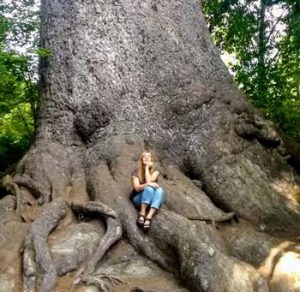Leveraging an embodied, relational brain focus has proven to be the key contributor toward markedly greater understanding, development, and sustainable change for all individuals.
Have you ever wondered how much your mindset impacts how you experience your life? How it might be linked to how successful you can be? Do you ever find yourself curious about how the people around you might also be impacting you?
You’re not alone.
Entire fields of study are dedicated to improving everything from individual and group performance to the overall sense of satisfaction we have in our daily lives and careers.
The methodology of Whole Person Coaching® a holistic transformational learning process is among them.
As a holistic change method, WPC works with the whole person through the mind-body connection helping people to modify the way in which they perceive and respond to their life circumstances. This enables them to be who they want to be and function at their best regardless of what else is going on in life or who else is around them.
As a Whole Person Coach, you learn to help your clients connect with who they are, inside and out, and on the deepest levels. The insights they gather from this place of self-understanding allow them to create a life that reflects the whole of who they are at their best. One in which they can learn how to not only accomplish their goals, but learn how to be their best and most effective selves.
WPC has been used by thousands of coaches throughout the world to better the lives of coach and client alike. Our success stories speak for themselves. Yet in the age of transparency, it’s also important to be upfront about the fields and processes at work at the heart of Whole Person Coaching.
Let’s begin by focusing on Cognitive Neuroscience and Interpersonal Neurobiology. While these two fields are interrelated, they look at learning, development and change from slightly different perspectives.
Cognitive Neuroscience
The roots of Cognitive Neuroscience can be traced to 4,000 B.C., where Sumerians noted the euphoric effects of the poppy plant. In the centuries that have passed since, people have studied the brain, its structure, and how it can be impacted (and react) to countless stimuli.
Specifically, neuroscientists have focused on the correlation between cognitive functions and resulting behavior. It’s focus in on how the brain gives rise to mental processes such as decision-making, language, attention, perception and consciousness.
Interpersonal Neurobiology
Interpersonal neurobiology (IPNB) is an interdisciplinary field that focuses on the intersection of neuroscience and psychology to better understand how relationships and emotional, social interactions shape our brains and behavior.
IPNB emphasizes the importance of studying the brain and the mind as an integrated system and recognizes that our experiences in relationships and social contexts have a profound impact on our neural development and functioning.
Overall, the field of interpersonal neurobiology offers a unique and comprehensive approach to understanding the complex relationship between brain and behavior in the context of social interactions and relationships.
In Whole Person Coaching, we combine these two perspectives as a way to understand best practices on how to coach the whole person. Looking at the mental, emotional, social, physical and spiritual aspects of a person and their life.
At Coach Training World, we are particularly fond of Interpersonal Neurobiology for good reason: our personal and professional relationships are an essential elements of our lives.
We are touched by others every day of our lives. As a coach you too touch the lives of your clients. Understanding the best practices to cultivate a safe and thriving environment for your clients to thrive is a key ingredient to your success at evoking change in others.
Self-Reflection
Pause for a moment and reflect on someone that has touched your life. Someone who believed in you. What do you notice when you think about this person? What feelings or thoughts arise. Our most significant relationships have lasting effects. As a coach, your greatest impact is your presence. Who do you want to be for others?



